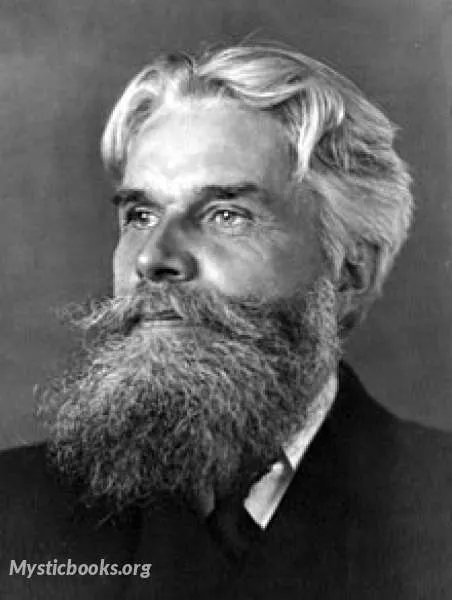
Timeline
Title
Country/Nationality
Havelock Ellis
Henry Havelock Ellis was an English physician, eugenicist, writer, progressive intellectual and social reformer who studied human sexuality. He co-wrote the first medical textbook in English on homosexuality in 1897, and also published works on a variety of sexual practices and inclinations, as well as on transgender psychology. He is credited with introducing the notions of narcissism and autoeroticism, later adopted by psychoanalysis.
Ellis was among the pioneering investigators of psychedelic drugs and the author of one of the first written reports to the public about an experience with mescaline, which he conducted on himself in 1896. He supported eugenics and served as one of 16 Vice-Presidents of the Eugenics Society from 1909 to 1912.
Ellis, son of Edward Peppen Ellis and Susannah Mary Wheatley, was born in Croydon, Surrey (now part of Greater London). He had four sisters, none of whom married. His father was a sea captain, his mother the daughter of a sea captain, and many other relatives lived on or near the sea. When he was seven his father took him on one of his voyages, during which they called at Sydney, Australia; Callao, Peru; and Antwerp, Belgium. After his return, Ellis attended the French and German College near Wimbledon, and afterward attended a school in Mitcham.
In April 1875, Ellis sailed on his father's ship for Australia; soon after his arrival in Sydney, he obtained a position as a master at a private school. After the discovery of his lack of training, he was fired and became a tutor for a family living a few miles from Carcoar. He spent a year there and then obtained a position as a master at a grammar school in Grafton. The headmaster had died and Ellis carried on at the school for that year, but was unsuccessful.
At the end of the year, he returned to Sydney and, after three months' training, was given charge of two government part-time elementary schools, one at Sparkes Creek, near Scone, New South Wales, and the other at Junction Creek. He lived at the school house on Sparkes Creek for a year. He wrote in his autobiography, "In Australia, I gained health of body, I attained peace of soul, my life task was revealed to me, I was able to decide on a professional vocation, I became an artist in literature; these five points covered the whole activity of my life in the world. Some of them I should doubtless have reached without the aid of the Australian environment, scarcely all, and most of them I could never have achieved so completely if chance had not cast me into the solitude of the Liverpool Range."
Ellis returned to England in April 1879. He had decided to take up the study of sex and felt his first step must be to qualify as a physician. He studied at St Thomas's Hospital Medical School, now part of King's College London, but never had a regular medical practice. His training was aided by a small legacy and also income earned from editing works in the Mermaid Series of lesser known Elizabethan and Jacobean drama. He joined The Fellowship of the New Life in 1883, meeting other social reformers Eleanor Marx, Edward Carpenter and George Bernard Shaw.
In 1897 a bookseller was prosecuted for stocking Ellis's book. Although the term homosexual is attributed to Ellis, he wrote in 1897, "'Homosexual' is a barbarously hybrid word, and I claim no responsibility for it." In fact, the word homosexual was coined in 1868 by the Hungarian author Karl-Maria Kertbeny.
Ellis may have developed psychological concepts of autoerotism and narcissism, both of which were later developed further by Sigmund Freud. Ellis's influence may have reached Radclyffe Hall, who would have been about 17 years old at the time Sexual Inversion was published. She later referred to herself as a sexual invert and wrote of female "sexual inverts" in Miss Ogilvy Finds Herself and The Well of Loneliness. When Ellis bowed out as the star witness in the trial of The Well of Loneliness on 14 May 1928, Norman Haire was set to replace him but no witnesses were called.
In November 1891, at the age of 32, and reportedly still a virgin, Ellis married the English writer and proponent of women's rights Edith Lees. From the beginning, their marriage was unconventional, as Edith Lees was openly lesbian. At the end of the honeymoon, Ellis went back to his bachelor rooms in Paddington. She lived at Fellowship House. Their "open marriage" was the central subject in Ellis's autobiography, My Life. Ellis reportedly had an affair with Margaret Sanger.
Ellis resigned from his position of Fellow of the Eugenics Society over their stance on sterilization in January 1931.
Ellis spent the last year of his life at Hintlesham, Suffolk, where he died in July 1939. He is buried in Golders Green Crematorium, in North London.
Books by Havelock Ellis
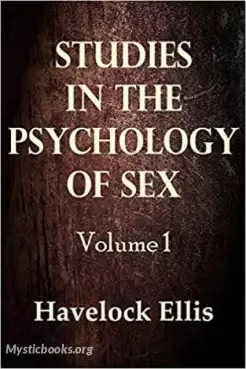
Studies in the Psychology of Sex, Volume 1
The first of six volumes, this volume covers in extensive detail the topics of "The Evolution of Modesty", "The Phenomena of Sexual Periodicity", and "Auto-Eroticism". Written as an anthropological and psychological study from the point of view of Ha...
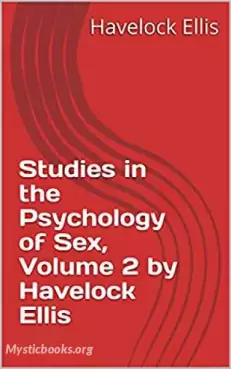
Studies in the Psychology of Sex, Volume 2
The second of six volumes, this volume covers in extensive detail the topic of "Sexual Inversion", or homosexuality to give it a more current name. Written as an anthropological and psychological study from the point of view of Havelock, the famous B...
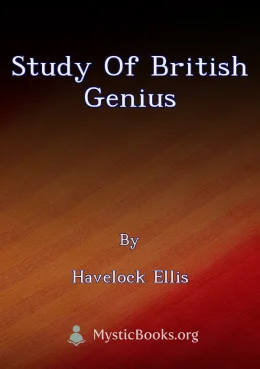
Study of British Genius
In this extensive study, Havelock Ellis examines the psychological and anthropological characteristics of genius in the British Isles. Utilizing data from the Dictionary of National Biography, Ellis analyzes various aspects of the lives of eminent in...
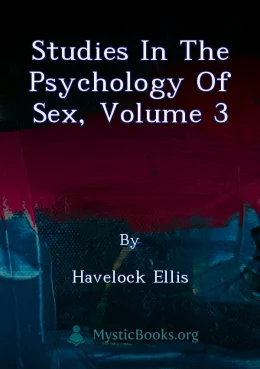
Studies in the Psychology of Sex, Volume 3
Havelock Ellis's "Studies in the Psychology of Sex" delves into the complexities of human sexuality, examining a wide range of topics including the nature of sexual desire, the origins of sexual perversions, and the unique aspects of female sexuality...